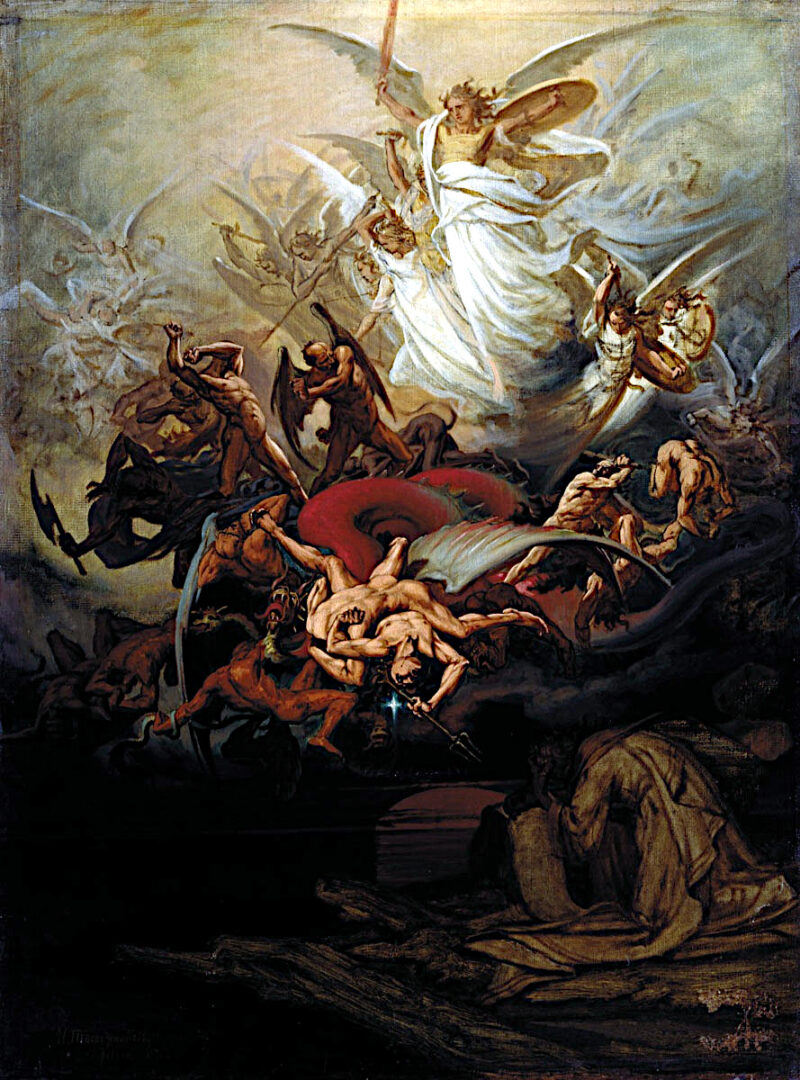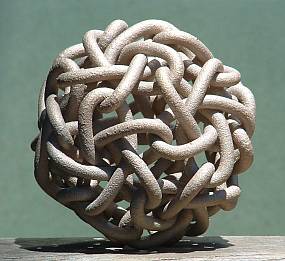“When an unclean spirit comes out of a person, it roams through waterless places looking for rest, and not finding rest, it then says, ‘I’ll go back to my house that I came from.’ Returning, it finds the house swept and put in order. Then it goes and brings seven other spirits more evil than itself, and they enter and settle down there. As a result, that person’s last condition is worse than the first.”
—Luke 11:24-26
“The road to hell is paved with good intentions” is likely not a favorite aphorism of many—mostly because it may be more true than any of us would care to admit.
Exorcising a demon out of a man may, on the surface, seem about the most positive thing that could happen to that man, but Jesus said that unless other events transpire, that demon may return and bring more noxious demons with it. And so, an act of good becomes something much worse.
Because we lack a crystal ball to scry the future, and because we often don’t know or can’t manufacture the necessary next ingredient to keep a good situation from souring, we need to be more sober about what happens to us and whether that positive happening is only good in the moment, with its gotcha component still to come.
I don’t know what it is about American Christians today that we can’t get over exclaiming, “It’s a God thing!” whenever some positive event or windfall occurs. Fact is, we don’t know that—at least in the most basic way. Maybe it’s just a thing and we need to reserve judgment, allowing time to reveal its future aspects.
Winning the lottery would sound like a “God thing,” but when you read the horror stories of lottery winners whose lives crash and burn post-windfall, you start to wonder. Did God bless them with money only to destroy them later because of it? That’s a theodicy I don’t want to wander into, and yet many people do carelessly. How they manage to reconcile such dichotomies leads me to believe they never attempt to, and they just move on as if nothing happened, living in perpetual denial.
In contrast to the “from blessing to doom” pathway, we have this in the life of the patriarch Joseph:
Then Joseph said to his brothers, “Please, come near me,” and they came near. “I am Joseph, your brother,” he said, “the one you sold into Egypt. And now don’t be grieved or angry with yourselves for selling me here, because God sent me ahead of you to preserve life. For the famine has been in the land these two years, and there will be five more years without plowing or harvesting. God sent me ahead of you to establish you as a remnant within the land and to keep you alive by a great deliverance. Therefore it was not you who sent me here, but God. He has made me a father to Pharaoh, lord of his entire household, and ruler over all the land of Egypt.”
—Genesis 45:4-8
Joseph was beaten by his brothers and left in a hole to die. He was sold into slavery, had a brief respite, and was later thrown into prison to rot. Everyone forgot about him, even the ones he asked not to.
But eventually, God not only restored Joseph, He elevated him to the second-in-command of the Egyptian empire, where his insight and blessings of God upon him resulted in saving a majority of the world from years-long famine.
The hubris of many of us American Christians is acting as if we know everything God is doing. But we don’t. In fact, we have almost no idea what God intends out of this happening or that circumstance. One day you get a promotion to an executive leadership position at work, and a month later you are indicted along with the rest of the leadership team for securities fraud. Welcome to the federal pen. Must be a God thing.
Come now, you who say, “Today or tomorrow we will travel to such and such a city and spend a year there and do business and make a profit.” Yet you do not know what tomorrow will bring — what your life will be! For you are like vapor that appears for a little while, then vanishes.
Instead, you should say, “If the Lord wills, we will live and do this or that.”
—James 4:13-15
I write all of the above to leave with this: Consider being more circumspect of pronouncing such and such as a positive or negative. Consider being more wary of the surface appearance of good that comes your way, for underneath the tip of that cool, refreshing iceberg may lurk something catastrophic. Likewise, today’s doom may set you up to save your life and the lives of many. Not everything bad today is bad forever.
Most of all, pause to allow for time to reveal all things. There is no evil in saying you will reserve judgment until you know more. “We shall see” is not a pronouncement of faithlessness but one of a right mind governed by godly sober thinking.
Image: “The Struggle of Good and Evil Spirits” (1875) by Ivan Tvorozhnikov


